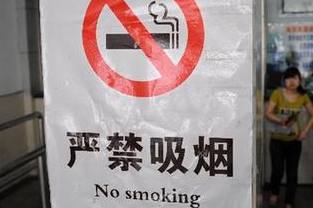Job in which a mistake can mean death

| Chu Jinyong installs and maintains underwater gas and oil facilities. Photos provided to China Daily |
Chu Jinyong has helped save the country millions of dollars, but it has cost him dearly
It is highly skilled and technical work, and if anything goes wrong, it can mean the difference between life and death. The 36-year-old diver has narrowly escaped being killed twice.
It is one of the most dangerous professions, and it has almost cost Chu Jinyong his life twice.
Chu has worked as a diver with China National Offshore Oil Corporation since 2005 and has dived to depths of tens of meters underwater, in the pitch black, to install and maintain offshore gas and oil facilities over nearly 800 hours. His team of 41 divers has laid pipelines across 3,290 kilometers of seabed.
It is highly technical work, and if anything goes wrong, it can kill you.
One winter when Chu, now 36, was working underwater in the freezing Bohai Sea his lifeline of air froze, leaving him with just his oxygen tank.
"The oxygen tank is also called the 'back-home tank' only to be used in a severe emergency," Chu says. The tank can give divers 20 minutes' of air supply at the most, depending on the depth.
He remained calm, using the air supply from the tank, and returned to the surface as quickly as he could.
"If you panic, your breath gets faster which means more air to inhale, and that could make things worse," he says.
On another occasion, one freezing morning in 2009, working underwater for an hour in a Bohai Sea covered by ice floes, a huge gale came up that had ships shaking and floes moving rapidly.
| In one of his dives in the Bohai Sea, Chu stayed in the icy water for more than two hours. |
After being ordered to leave the water, Chu slowly surfaced and realized how rough and perilous the weather was.
"The floes were moving very quickly, and in such conditions they can easily cut oxygen tank pipes. With the floes and high waves I just did not know where to get out of the water."
His colleagues eventually plucked him from the water, and they told him that as they were doing that, a sharp floe had been heading towards him.
"It was so close that if I had been in the water a second longer I would have been decapitated or cut in half."
Chu, born in Hubei province and raised near the Yangtze River, believes his service in the navy as a diver for eight years taught him how to deal with tense situations and reduce risk.
He dives to depths less than 60 meters, which is called air diving, similar to scuba diving.
In the Bohai Sea, you do not dive for pleasure, because it is devoid of beautiful coral and colorful fish. The water is pitch black, so divers have to work blind.
"Eyes are useless underwater and I must have everything in my head before diving," Chu says.
Running out of air is just one hazard of Chu's work. The ocean puts the body's limits to the test. There is extreme cold, around 4 C, and increased physical pressure, and a sudden change can be fatal.
Fast water flow, deserted fishing nets and ice floes at sea make the underwater work more challenging.
No one has more painful memories than Chu from China's sea ice threat from December 2009 to February 2010.
In one of his dives in the Bohai Sea then, Chu stayed in the icy water for more than two hours and soon could not feel any part of his body.
"Have you ever seen a freezing man cry? That's what happened when I got out of the water."
Data from the State Oceanic Administration shows more than half of the Bohai Sea was covered by ice on Jan 23, 2010, a historic record.
Exiting the water covered in ice floes was another challenge, because the floes can hurt divers in unpredictable ways.
"We have no choice but to dive whenever there is a need," Chu says.
CNOOC, as the national offshore oil company, is responsible for looking for new energy resources for fuel-hungry China with its rapid economic growth. The increasing offshore drilling platforms have kept Chu and his team very busy.
Every year for the past nine years he has spent up to 260 days at sea, including during Spring Festivals, a time of the year when most Chinese families get together.
"Once at sea, the work is around the clock, and you need to be physically strong and mentally tough," Chu says.
He feels sorry for his wife and parents, he says, because they have to endure his long absences, and every time he sees his three-year-old son, the boy looks at him as though he is a stranger, which Chu finds distressing.
The longest period he has spent with his wife is about one month, after his son was born.
"My son seldom talks to me," he sighs.
Despite the dangers and long absences from home, Chu says he has never considered quitting his job.
"I can work till I'm in my 50s," he smiles.
Over the past nine years, he and his team have successfully completed 34 repair projects involving offshore oil and gas facilities, avoiding economic losses estimated at least 530 million yuan ($86 million; 62 million euros), the CNOOC says.
Wangqian@chinadaily.com.cn
(China Daily Africa Weekly 06/06/2014 page29)
Today's Top News
- China accelerates push for autonomous driving
- Opening of new gateway can help foster global economic and trade cooperation
- The farmer, the snake and Japan's memory hole
- Crossing a milestone in the journey called Sinology
- China-Russia media forum held in Beijing
- Where mobility will drive China and the West
































